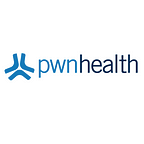National COVID-19 Vaccination Administration: The Missing Piece
Authored by Gabe Gaviola, MD, Medical Director at PWNHealth
Six weeks after the first COVID vaccine received emergency use authorization from the FDA, the worst pandemic in 102 years continues. The challenge ahead is not one of creating a vaccine, but of logistics, building confidence, and supporting the rollout to 330 million Americans with reassurance and support. Effectively immunizing a critical mass has the potential to end the pandemic — if we do it right.
The development, approval, and initial mass manufacturing of the first COVID-19 vaccines was an incredible feat, compressing a process that normally takes 10 to 15 years into under 10 months. While vaccine rollout had a slow and rocky start, we are now vaccinating 1.2 million Americans per day, and are on target to fulfill President Biden’s promise to administer 100 million shots in his first 100 days in office. Since the first COVID-19 vaccine was released in late December, the U.S. has administered just over 28 million shots.
But now, a different challenge has arisen. Vaccine distribution and administration, in contrast to vaccine development, has been left to individual states. It has required a variety of players, including delivery and storage companies, as well as a host of healthcare organizations, working in concert to get the vaccine into the arms of Americans. These hospital systems, retail pharmacy chains, universities, group medical practices, and public health departments have risen to the shifting demands of this pandemic, but are still reeling from recent surges in testing demand, positive cases, and hospitalizations. Now, many of these entities are burdened with managing a complex operation of logistics, cold chain maintenance, staffing, scheduling, record-keeping, and providing support for recipients.
But they are not the only ones struggling.
The Missing Piece
Successful vaccination programs are not just about vaccine development, supply, and staff, but also about addressing the concerns of the individuals who must be vaccinated: the millions of people parsing conflicting sources of information. Their anxieties at the prospect of a new, rapidly-developed vaccine; their hopes to return to a semblance of normalcy and to visit elderly parents or grandparents; their concerns stemming from information they have read online or heard from a friend; their unease after hearing news reports of vaccine side effects.
To effectively roll out the vaccines to 330 million Americans, we need to assuage their worries.
As individuals receive healthcare from entities other than their primary care team, there is an inherent disintegration of the relationship between a patient and provider. Some of these groups may be more equipped to handle the questions and concerns of those they are vaccinating, like employee health divisions of hospital systems, or student health departments at universities. But many others, like state-organized immunization sites, may not be able to provide access to real-time guidance to answer questions about vaccine reactions, implications, and more. Recipients may turn to unreliable sources of information, amplifying misinformation and distrust.
Solving the Puzzle
Operation Warp Speed, the U.S. response to accelerate vaccine development, manufacturing, and distribution to states is an unprecedented achievement. But the partners responsible for the last mile of vaccine deployment need help to support vaccine recipients throughout the process.
Much like we complemented COVID-19 testing efforts in the absence of a coordinated, national testing plan by supporting over 15 million COVID tests to date, PWN has stepped in to assist the national vaccine rollout. We are filling the gaps in diverse state vaccine administration programs with comprehensive counseling services for vaccine recipients.
Included in this program are:
- Patient education resources, including FAQs around the vaccine, access to state and federal guidance, and assistance in scheduling appointments.
- Patient monitoring and access to a direct customer service line for post-vaccination inquiries.
- Tracking and triage of any post-vaccination clinical questions to licensed nurses and board-certified physicians for real-time assistance. These clinicians direct those who need immediate care into the healthcare system, provide supportive care when appropriate, and follow-up in 24 hours for more severe cases.
- Data collection and reporting to the appropriate entities including the FDA Vaccine Adverse Events Reporting System (VAERS).
We have partnered with CIC Health, a health tech company based in Cambridge, Massachusetts, to offer COVID-19 testing and vaccination support services for thousands of individuals a day. CIC Health operates 27 public testing sites along with two mass vaccination sites at Gillette Stadium and Fenway Park. Since the launch of the latter — January 18 and February 1, respectively — PWN has handled thousands of inquiries from individuals seeking assistance. It is evident these support services are critical.
In the age of social media, the negative experience of a single individual can taint the opinion of thousands. By designing and delivering vaccination and testing experiences focused on the individual, we can effectively encourage millions of Americans to participate and hopefully move closer to ending this dreadful pandemic. The collaboration between CIC Health and PWN highlights the advantage of partnering with a large clinician network which has the expertise and scale to carefully and compassionately attend to individuals’ crucial concerns.
For more information on PWNHealth and to learn more about our vaccination support services, visit www.pwnhealth.com or email partner@pwnhealth.com.
